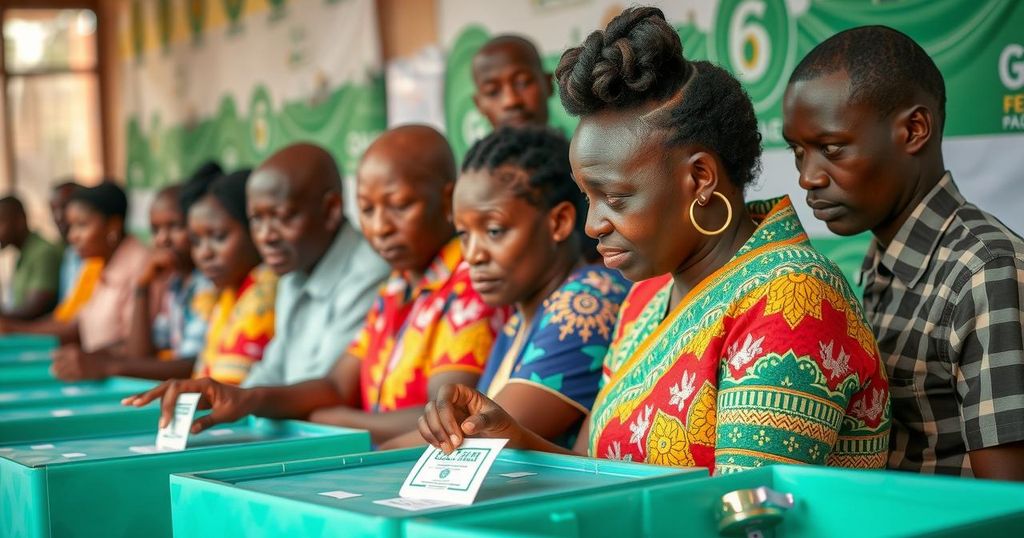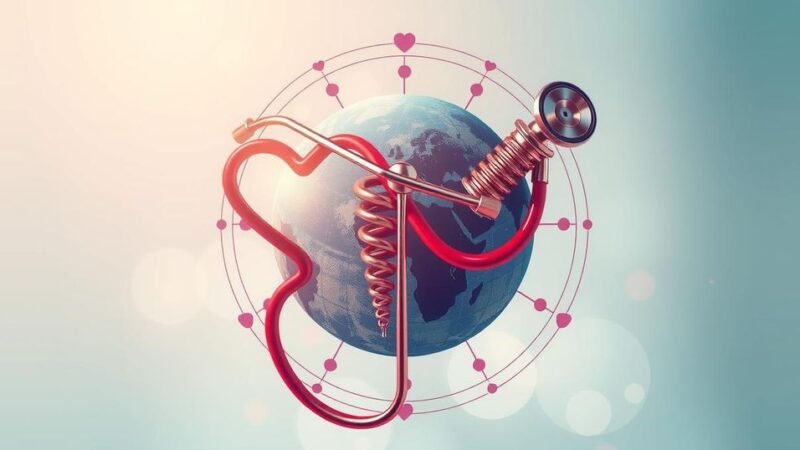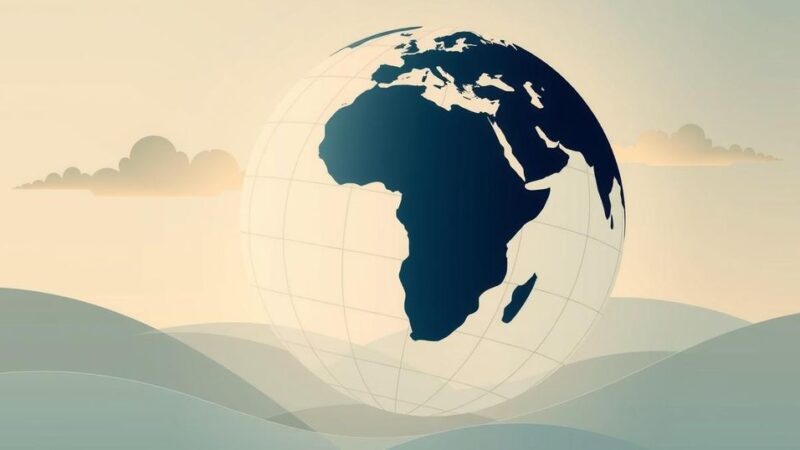Ghana’s elections on Saturday will determine a new president amid a debt crisis and inflation concerns. Former President John Mahama is challenging Vice-President Mahamudu Bawumia. Voters have 10 hours to cast their ballots, with results expected in three days. Economic struggles, especially high unemployment and living costs, will play a significant role in influencing voter decisions.
Ghana has entered a crucial election phase with voters poised to choose a new president on Saturday. This election is marked notably by economic challenges, including a debt crisis and significant inflation, which have left many Ghanaians concerned about their financial well-being. Nana Akufo-Addo, the current president, is stepping down after his two-term limit, paving the way for a new leader. John Mahama, the former president, representing the National Democratic Congress (NDC), is vying for a comeback against Vice-President Mahamudu Bawumia of the New Patriotic Party (NPP), who could become the country’s first Muslim president if elected. Other candidates in the race include businessman Nana Kwame Bediako and Alan Kyerematen, a former NPP member now running independently.
Approximately 19 million individuals are registered to participate in the election, which includes voting for members of parliament across 275 constituencies. Despite efforts to enhance female representation in politics, the only female presidential candidate, Akua Donkor, recently passed away, yet her name will remain on the ballot due to the disqualification of her successor. Historically, the presidential elections have been dominated by the NDC and NPP, with neither party having successfully served more than two consecutive terms.
Voters have a window of ten hours to cast their ballots, from 07:00 GMT to 17:00 GMT, with results anticipated to be announced within three days. A candidate must secure over 50% of the votes to win outright; otherwise, a runoff election will occur by the end of December, involving the two leading candidates. As the campaigns concluded, Bawumia asserted that his government has outperformed Mahama’s, while Mahama emphasized a crucial choice regarding Ghana’s future. The backdrop of skyrocketing inflation, reaching 54.1% last year, has heightened the urgency of these elections amid economic distress and ongoing negotiations with international lenders for debt restructuring.
Furthermore, high unemployment rates, particularly among the youth, are notable factors that will likely influence the election outcome. The World Bank’s reports highlight the significant impact of these economic difficulties on the populace, potentially driving voters to favor candidates who present feasible solutions for national recovery and development.
The elections in Ghana occur amidst a backdrop of significant economic struggles, including high living costs and a debt crisis that has compelled the government to negotiate with international institutions for loan restructuring. With approximately 19 million registered voters, this election holds particular importance as it is guaranteed to result in a new president stepping in for the term-limited Nana Akufo-Addo. Historical patterns indicate that candidates from the NDC and NPP consistently dominate major elections since 1992, with traditional party loyalty shaping voters’ choices. Noteworthy is the push for greater female political representation, which continues to face barriers.
In conclusion, Ghana’s forthcoming elections are poised to have profound implications for the nation amidst economic turmoil. With a record of significant inflation and a focus on enhancing women’s political involvement, voters will cast their ballots to decide the future leadership of the country. Strong participation is anticipated, with potential ramifications on economic recovery and social stability, reflecting the pressing needs of the Ghanaian populace.
Original Source: www.bbc.com






